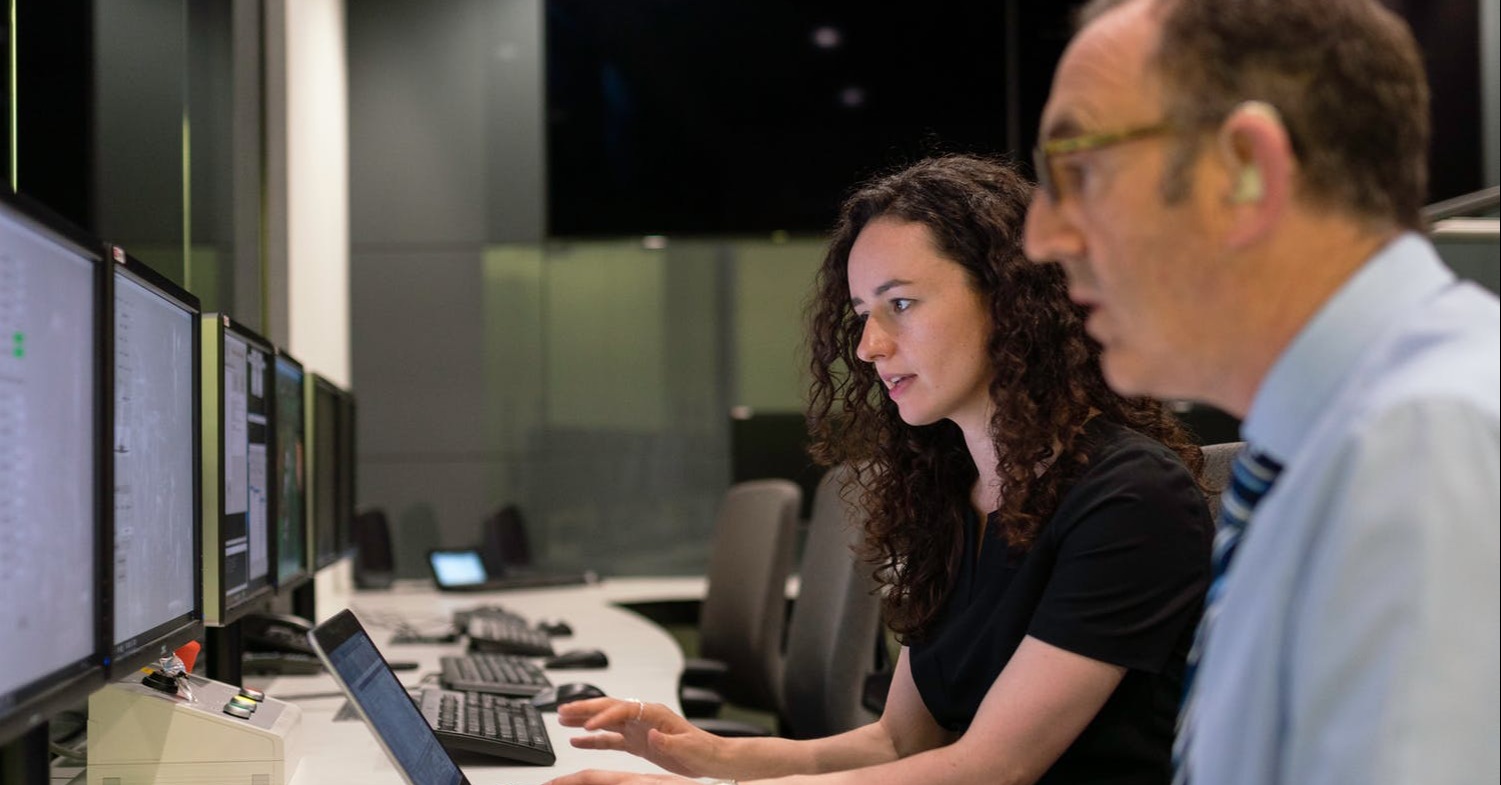
What Are the Best Companies for a Supply Chain Management Career?
According to Gartner, the best companies for a supply chain [...]

Supply chain management (SCM) impacts the sale of every product in the world. SCM’s prominence in commerce translates into many excellent job opportunities in the production, transportation, and sale of goods. SCM skills are often transferable, meaning what you learn at the beginning of your career can remain relevant throughout. It also means extraordinary job mobility once within the field.
First, however, you need to land a job, and that means preparing your resume. Crafting a strong resume specifically designed for SCM presents unique challenges. Because the field is so broad, it can be difficult to target the exact position that you want. Similar jobs may involve different responsibilities based on the sector you’re working in and the company’s size, requiring applicants to highlight specific aspects of their work history. Specialty certifications and industry-specific work experience can help qualify you, but the process is far more complicated than listing accomplishments.
This article on what makes a supply chain management resume strong? provides information on everything you need to cut through confusing requirements so you can land the SCM position of your dreams. It covers:
There are thousands of ways to move goods from one place to another; the goal of a supply chain manager is to find the best one, which means keeping supply chain costs low while doing as much business as possible. SCMs strive for continuous improvement, implementing cost reduction and process improvement policies where possible. As part of a management team, these professionals must have excellent communication skills and a firm grasp of business processes.
Daily duties for a supply chain manager can include:
Specialization is common in the field—you may focus on one area like procurement or distribution rather than trying to manage everything. Certain companies institute job rotations, which allows professionals to learn skills without getting stuck in one position.
Relevant SCM job titles include:
Supply chain managers need a combination of soft and hard skills, including:
Though many SCM skills are transferable, individual positions still dictate the abilities you need for day-to-day operations. For instance, purchasing managers and transportation managers both implement inventory control practices, but in different ways. Transportation managers may need to think of aspects like packing, dispatching, and tracking inventory. Purchasing managers time and track deliveries, including of raw materials, to ensure shipments arrive at the right moment. They also keep an eye on inventory levels to ensure nothing goes to waste.
Every supply chain professional needs flexibility and problem-solving skills. The supply chain is essentially a living organism, and things don’t always go smoothly. Laws and tariffs shift constantly, changing costs and requiring managers to reevaluate their plans. Data analytics heavily influences decisions about logistics and budget management.
Communication is the top SCM skill. You could be a data wizard and know the best way to solve every problem, but knowledge is useless if you can’t communicate it to other team members. Supply chain managers interact with numerous actors, including employees and third parties. Proper communication channels between cross-functional teams are essential because they help information flow freely and keep the whole chain moving smoothly.
Supply chain managers don’t technically need degrees, but having one leads to better job opportunities and higher salaries. According to the Association for Supply Chain Management known as the (APICS), 54 percent of supply chain managers aged 20 to 29 majored in SCM in college. According to the study, 20 percent majored in something else, but 21 percent of respondents took classes in SCM even though it wasn’t their major. Older respondents were less likely to major in SCM.
Those who do not earn a bachelor’s degree in supply chain management may opt to major in:
Those who decide to to earn a master’s degree typically get a Master of Business Administration (MBA). According to the APICS, 63 percent of conferred graduate degrees in SCM are MBAs, while 37 percent hold a Master of Science (MS) degree.
SCM MBA programs usually attract professionals with multiple years of experience—either in supply chain management or another field. Programs teach students to apply business principles to supply chain management. Courses combine business and SCM subjects. Sample course titles include:
You may opt to earn a MS in Supply Chain Management or Global Supply Chain Management. These programs teach skills to develop solutions to supply chain problems. Though graduates certainly qualify for management positions, it’s not as much of a focus in this degree. Students study subjects like:
A master’s is best if you want to advance an already good career and move into a leadership position. Keep in mind: SCM leaders often work long hours in high-stress environments.
Certain areas of supply chain management work better for a master’s than others. According to a Quora thread, master’s degrees are less useful for transportation and distribution-focused professionals than for those working in procurement, sourcing, purchasing, or merchandising. Master’s degrees can also help professionals looking to move to SCM from another field.
Certifications offer another great way to increase your salary and job prospects. According to the APICS, supply chain professionals with at least two certifications earn a median salary of $95,000 per year. The top ten percent earns over $150,000. Professionals often hold both certifications and graduate degrees.
According to a Supply Chain Quarterly interview with Roger Zetter, CEO of Optimum Supply Chain Recruiters, recruiters seek candidates “who understand comprehensive supply chain systems, have polished, persuasive presentation skills, and work well within a team structure.”
Looking at job descriptions and resume samples for positions you want is a great way to determine what should go on your CV. Tailor your resume to the company or job you are applying for. For example, highlighting negotiation and forecasting skills can help when applying for a procurement manager position.
The Society for Human Resource Management published a template supply chain manager job description. Required duties include:
Highlighting previous jobs that required these skills can be beneficial to landing a position you want. Additionally, you should list experience with SCM tools like:
A great cover letter can enhance your resume. It’s an opportunity to showcase desirable qualities like leadership skills and problem-solving abilities. When staffing, hiring managers—typically your first point of contact—like to see candidates who both have a track record of business success and care about the position they seek.
Take advantage of the help offered through any education programs you complete. The University of Texas at Dallas Jindal School of Management offers resume-building workshops to graduate and undergraduate students. These sessions can help you build out a supply-chain focused resume and advance your job search.
Finally, supply chain professionals benefit from knowledge specific to their industry, according to the Logistics Bureau. That means if you work in medical supply shipping, an understanding of the medical field, including markets and regulations, is helpful. If you have that sort of specialized knowledge, make sure to highlight it in your resume.
There are several paths to an SCM career; it really depends on your goals. Even though most supply chain managers have either a bachelor’s or master’s degree, it’s possible to enter the field with just a high school diploma, or even no degree.
That said, your education will play a significant role in determining where you start. Those without any degree may begin as warehouse workers and get promoted to management positions. Those who earn a bachelor’s in supply chain management likely start as a:
Occasionally, master’s degree-holders may get jobs with entry-level titles. These professionals have more responsibility than those straight out of college and may manage a team of junior professionals.
Certification can help you advance your SCM career without earning a master’s degree. Certifications lead to more money because they enable you to refine your skillset and either earn a promotion or qualify for a better job. According to APICS, “Supply chain professionals who hold just one certification reported a median salary that was 12 percent higher than those who are not certified.” Each additional certification leads to even higher salaries, the report says.
According to CIO, top SCM certifications include:
Naturally, the certification you earn depends on the kind of position you want. For instance, a logistics manager may be more inclined to earn a CPL than a purchasing manager.
There’s no answer to the question: what’s the best master’s in supply chain management program? It depends on your goals, timeline, and even location. That said, rankings are a good barometer, especially those from reliable sites like US News & World Report. Top MS and MBA programs include:
Top online MS and MBA programs for supply chain management include:
(Last Updated on February 26, 2024)
Questions or feedback? Email editor@noodle.com

According to Gartner, the best companies for a supply chain [...]

Anyone with professional military, A&D industry, or business experience interested [...]

Tuition for executive MBA (EMBA) programs can be expensive, although [...]

A master's in any engineering discipline is a concrete way [...]

An analytics MBA combines business with big data to prepare [...]
Categorized as: Supply Chain Management, Business & Management